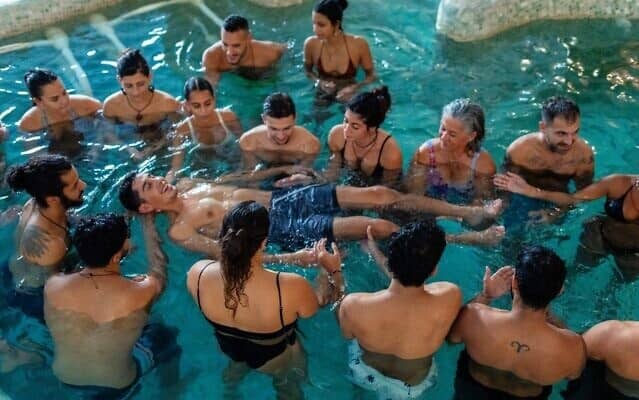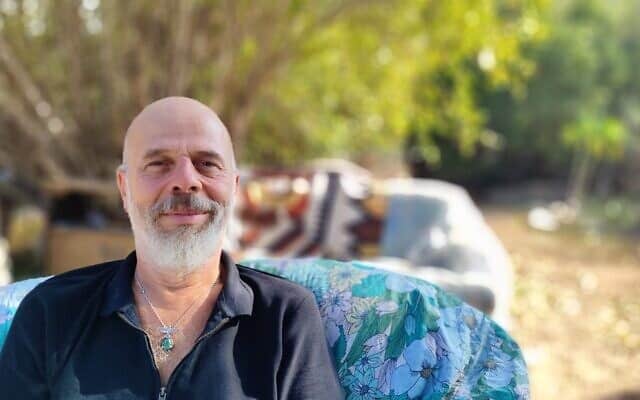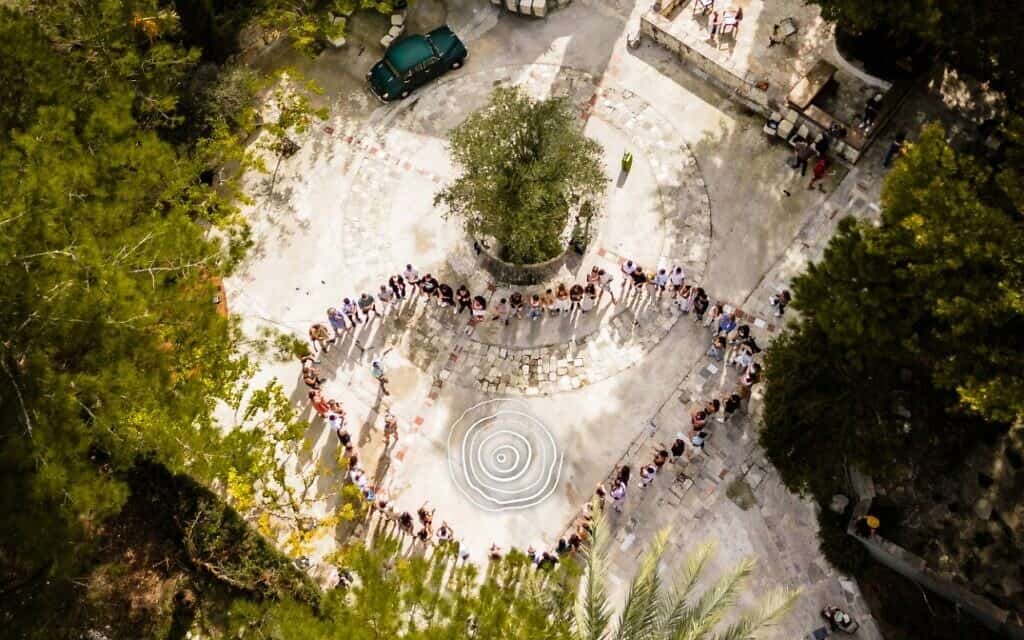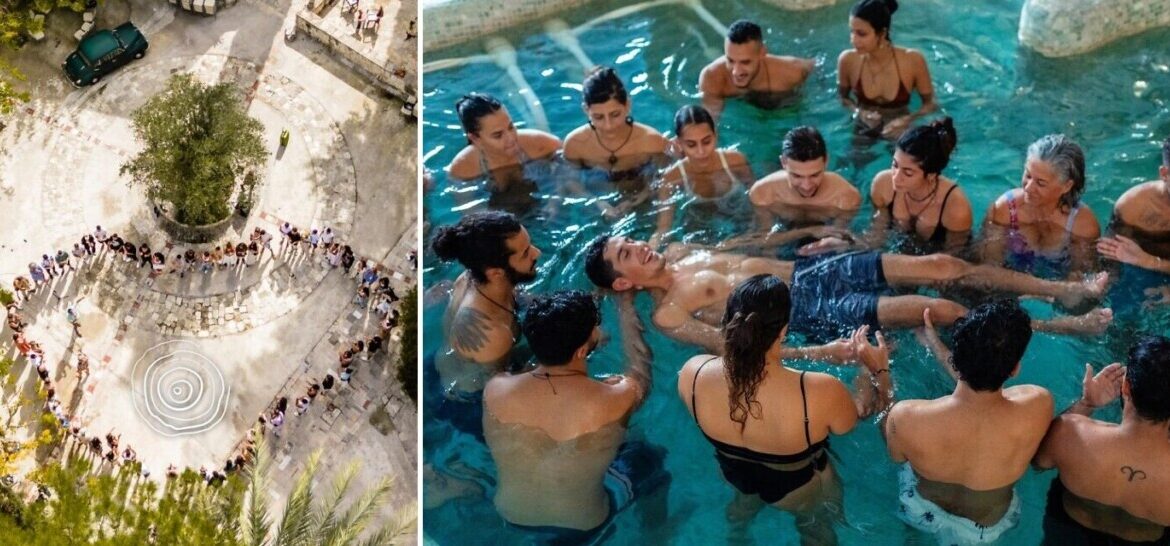Thousands of young people at the Supernova music festival, billed as “a journey of unity and love” with “mindblowing and breathtaking content,” had their lives transformed forever when Hamas began its brutal and shocking attack on Kibbutz Re’im, 3 miles from the Gaza border.
The rave was still in full swing when Hamas launched its assault as the rose rose. The beat of the music became confused with gunfire as Palestinian militants stormed the festival. Hamas killed, raped and kidnapped its way through the rave party. And now, the survivors have the long and difficult journey towards recovery.
As the Times of Israel reported, Mediterranean ocean breezes, spa treatments, acupuncture, gourmet food, meditation, yoga, music and therapy sessions are just some of what is on offer at a posh Cyprus getaway, free of charge, to survivors of the Supernova party massacre.

The Israeli owner of the sprawling Secret Forest retreat center, located in the mountains above Paphos, immediately sprang into action after the terrible events of October 7. Working with trauma experts, his team organized an ongoing series of fully subsidized five-day therapeutic retreats for groups of party survivors, 50 or so at a time.
The early morning of October 7, which was the Simchat Torah holiday and also a Shabbat, saw the surprise assault by thousands of Hamas terrorists, who broke through Israel’s security around the Gaza Strip, committing atrocities and massacres and setting off a new war.
That day saw some 1,200 Israelis killed and over 240 taken captive, including children and the elderly. Besides the pogroms committed on kibbutzim adjacent to the strip and other locations, the terrorists attacked the Supernova music party, a desert rave event that had some 3,000 attendees, many of whom were in various states of inebriation.
“We were here on Simchat Torah, we love our country and our people, and we thought, how can we help from here? We saw all the people who had survived the party… sitting at home with all the trauma they had and all the stress in Israel. They lost friends but they themselves were saved. We thought of bringing them out here, to a quiet, healing utopia in nature,” explains Yoni Kahana, 35, the owner of Secret Forest.
Kahana, who grew up in the Chabad movement, said: “It’s emotional to see the influences this has had on them. They told me they hadn’t eaten, didn’t sleep well and were traumatized. But suddenly, the passion for living returned.”
Secret Forest, which caters mostly to Israelis, has a kosher kitchen and attracts a mix of religious and secular people. The high-end, picturesque retreat center boasts a host of facilities, treatments and holistic healing possibilities. Stays there normally cost what one might expect from an exclusive Mediterranean getaway, between NIS 800-1,500 a weekday night depending upon accommodations.

Kahana was able to offer the facility free of charge for the Supernova survivors, in part out of his own generosity and desire to help.
They subsequently opened a crowdfunding effort to be able to continue the free treatments. There is now a 1,400-person waiting list.
Zohar Wilson, 58, a psychotherapist, had conducted workshops at Secret Forest in the past and was one of the first people Kahana reached out to about the project. He was part of the senior professional team assembled to lead active treatments and oversee the therapeutic aspects of the operation.
What the therapists performed was “not regular treatment for post-trauma. It’s a treatment for trauma that has occurred recently, it’s still happening. It’s totally different. You don’t take people into their emotions, subconscious or childhood trauma,” he explained.
One of the experts was a specialist in psychedelics, Wilson said, because “people went into trauma while they were tripping. It’s a whole new ballgame.”
Many of the Supernova survivors have a “double trauma,” he explained, first because they survived the terror event and are experiencing all the psychological effects that come with that, and then because they were under the influence of various substances during the assault.

“For some of them, they died because of it. For some of them, it saved their life. It depends on the drugs. If you take a stimulant, an upper, you can run for hours. Some of them had to run for six hours nonstop [to escape the massacre], so that helped. For some of them, the fact that they were on psychedelics, it was for them in slow motion so they could function better. It’s very diverse,” he said.
The therapists tried to help the survivors understand that what they had passed through was a growth experience, “the gift they got from the tragedy,” Wilson explained. “All of them know a lot of people who died there, they were their friends. We had to help them deal with guilt. We had to move them from survivors’ guilt to survivors’ duty.”
He explained “survivors’ duty” as a feeling of, “I have a duty to be here. I have people who are close to me, children, parents, siblings, friends, and I have to be here for me and for them.”
Supernova party survivors in a water therapy session at the Secret Forest retreat center in Cyprus, in an undated photo. (courtesy)
One of the patients he treated in Cyprus, he said, had saved two other people during the party who weren’t fully functional, guiding them and taking care of them for hours, under fire, until they could reach safety.
“But she was full of guilt because she didn’t save more. So you have to normalize that guilt feeling. It’s normal to feel guilty. It’s normal to feel shame, guilt, sadness, agony, whatever. After you normalize it, then you can speak about moving on,” Wilson said.

Besides the group and individual therapy sessions, the survivors experienced a lot of pampering.
“Three luxurious meals a day. Spa. Swimming pools. Water treatments. Chinese acupuncture, reflexology, body massage, breathwork, music and wine every night, yoga classes, meditations, mindfulness, dance classes,” he lists. “They had activities from morning to night to keep them connected to the body, because that is the best grounding. The idea was to ground them.”
The therapy team screens applicants, as they can’t take the worst trauma cases who aren’t able to fully function. They are also working with the Hakomi Institute of Israel, a treatment center and school, and Nova Help, a charity group, in order to provide a series of free psychotherapy treatments after the Cyprus retreat, back in Israel.
The therapist team also meets the survivors on the ground at Ben Gurion Airport for the flight out and accompanies them on their return. In the case of the group Wilson was with, immediately upon landing they experienced a rocket alert at the airport and ended up cowering in the bathrooms for 20 minutes, a harsh return from the “non-reality” of their retreat.

“The treatments were very good. All the people there saved us, they knew our needs and were very sensitive to us,” participant Stefani Susan, 25, said.
“I returned from this week much stronger. I came with a friend, and we worried about arriving, it seemed strange to fly abroad… But when we arrived, we felt protected. I really enjoyed being with the people from the party, all the conversations. They really listened to us, we felt the loving kindness,” she explained.

Susan, who had been on a two-month trip to India right before the Supernova party, is now unsure about the next steps in her life.
“For the moment, I am taking time to understand myself, to decide what to do next,” she said.
READ MORE: Azerbaijan’s disinformation campaign targets Paris 2024 Olympics, French armoured vehicles arrive in Armenia.

